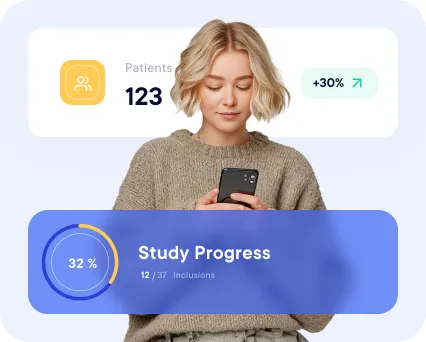ePRO allows subjects to report their trial experience electronically via phone, tablet or computer, replacing paper forms. In clinical trials, another common term associated with ePRO is eCOA. This term refers to all results recorded electronically, including results reported by patients or volunteers. The benefits of using ePRO in clinical trials are numerous, both for subjects and for clinicians and investigators, and this paperless data collection process has the potential to significantly improve the overall study experience for subjects. ePRO has several advantages when it comes to processing and understanding your study data. Since subjects enter their results directly into a digital format, depending on the features of your ePRO questionnaire that you define, you and your team will be able to monitor, analyse and react to the data collected.
Main benefits
1. Error detection and prevention
Data entry errors resulting from human error are unavoidable and validation checks are totally absent from paper-based data collection methods. Allowing data to be entered electronically using an ePRO will significantly speed up the process and allow data to be entered and checked directly into the system, rather than being entered manually by medical staff.
2. Improved regulatory compliance and a traceable audit trail
Many EDC and ePRO systems have an audit trail function, whereas paper-based systems and spreadsheets often make it difficult to track data changes.
3. Different data table options
Manual tabulation is a huge drawback of paper-based data management. The more complex the study, the more difficult, time-consuming and costly the corresponding resources you will have to invest. With ePRO, once constructed, data tables can be adapted and exported in multiple formats, saving you time on an otherwise tedious task.















